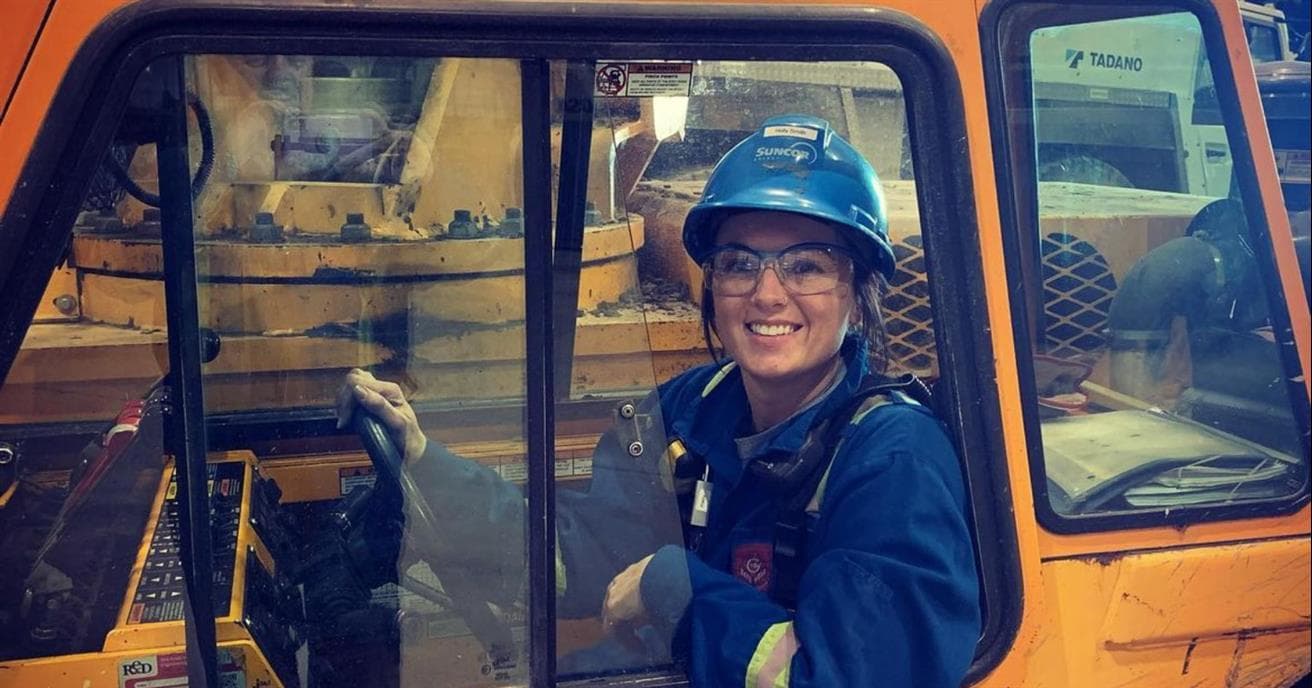Having worked in office-based roles in records management for many years, Holly was looking for a change and a way to get ahead. With a young daughter relying on her, there was a lot at stake.
“I thought about getting into trades and trying shift work, but I didn't even know where to start,” says Holly. “I reached out to a friend who happened to be recruiting apprentices for the cranes department at Suncor. He explained the job and I decided well, why not give it a go? I went from the office right into the field. It was a big 180, but I loved it. It was the best decision I’ve ever made, and it has allowed me and my daughter to live comfortably.”
Holly completed the four-year apprenticeship program with NCSG and went on to earn her Red Seal certification. Having secured her place in a largely male-dominated trade, she emphasizes “I never got treated differently because I was a woman. My crew taught me everything and took me under their wing.” She also notes that she’s seeing more women join the trade. "When I first got started, there was only one other woman in my department. Now there are five of us and it's great to have other women on the team.”
Holly’s passion for her trade is fueled by the camaraderie and teamwork it involves. Much like the softball leagues she plays in, operating a crane is a team sport. Crane operators work in close collaboration with a ground crew that includes riggers, signalers, and other professionals who help with load handling, navigation and problem-solving. Effective teamwork helps ensure the safe execution of a job. “We all work well together and there's someone always there to help you.”
Another aspect that Holly loves about being a crane operator is how each day is different from the next. From the crew, the equipment, location and type of job, it’s all variable. “When you start your shift, you're not sure what job you're going to be doing that day until you get there,” she says. Depending on the day, Holly says she can be almost anywhere on Base Plant, operating a rough-terrain (RT) crane to an all-terrain (AT), in sizes ranging from 35 tons to 250 tons. Her favourite crane is the 35-ton RT because it's smaller, quicker and it can fit into tighter spaces than the rest.
Holly says, if you’re looking for a rewarding challenge every day, then this is a trade for you. It takes time to earn your credentials and to develop the confidence you need to operate cranes, but it’s worth it. Her advice to aspiring crane operators, especially women, is simple: "Just go and do it – you won’t regret it. I have a job that I love and a great work-life balance for myself and my daughter.”





.jpeg?mw=304&modified=20220228224956&hash=7DAF6272B5625298C1818615B4B6A9FC)